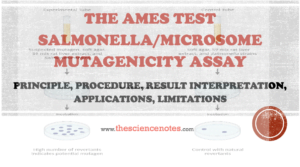
Fluoroquinolones: Structure, Classification, Mechanism of Action, and Antimicrobial Activity
Discover fluoroquinolones' structure, mechanism of action, and antimicrobial activity. Learn classification for effective use. Read more
Your Trusted Student Notes
Bacteriology is a fascinating field of study that focuses on the biology, structure, and function of bacteria. It has played a crucial role in our understanding of microbial life and its impact on human health, agriculture, and the environment. In this category, we’ll explore some of the key aspects of bacteriology and topics of bacteriology.
One of the fundamental areas of bacteriology is the classification and identification of bacteria. Bacteria are incredibly diverse, and scientists have developed several systems to categorize and name them. One of the most widely used methods is based on the bacteria’s genetic sequence. This technique, called DNA sequencing, allows researchers to identify and classify bacteria with incredible accuracy. It has revolutionized our ability to study microbial communities and to understand their role in various ecosystems.
Another critical aspect of bacteriology is the study of bacterial structure and function. Bacteria are unicellular organisms that have a range of shapes and sizes. Some are rod-shaped, while others are spherical or spiral. They also have a range of structures, including flagella, pili, and capsules, which play essential roles in their movement, attachment, and virulence.
Understanding the structure and function of bacteria is crucial for developing effective treatments for bacterial infections. Antibiotics are one of the most common treatments for bacterial infections. They work by targeting specific aspects of bacterial structure or function, such as cell wall synthesis or protein synthesis. However, the overuse and misuse of antibiotics have led to the emergence of antibiotic-resistant bacteria, which pose a significant threat to global public health.
Bacteriology also plays a crucial role in the field of agriculture. Bacteria are essential for soil health and plant growth, and they can be used to develop biofertilizers and biopesticides that reduce the need for synthetic chemicals. In addition, beneficial bacteria can be used to protect crops from pathogens and to improve yields.
In conclusion, bacteriology is a fascinating and important field of study that has numerous applications in various fields, from medicine to agriculture. It allows us to understand the diversity and complexity of bacterial life and to develop effective strategies for managing bacterial infections and promoting healthy ecosystems. As we continue to learn more about bacteria, we will undoubtedly discover new ways to harness their power for the benefit of humanity.

Discover fluoroquinolones' structure, mechanism of action, and antimicrobial activity. Learn classification for effective use. Read more

Explore the comprehensive guide to Carbapenems covering history, structure, mechanism, resistance, and antimicrobial activity. Read more

Explore the fascinating world of penicillin: history, structure, classification, mechanism, and antimicrobial activity in one article. Read more

Learn about cephalosporins: their structure, classification, mechanism of action, and potential side effects in this comprehensive article. Read more

Explore the history, structure, antimicrobial activity, mechanism of action, and overcoming resistance of aminoglycosides in this guide. Read more

Take a deep dive into the structure and components of prokaryotic cells with this informative exploration article. Read more

The Ames Test evaluates mutagenic potential. Learn its principle, procedure, result interpretation, applications, and limitations. Read more

Explore the detailed structure of eukaryotic cells, including their components and functions in this informative article. Read more

What is Pulsed field Gel Electrophoresis (PFGE)? Pulsed – field gel electrophoresis is a separation technique of large DNA molecules (entire genomic DNA) to produce... Read more

Explore bacterial conjugation, a genetic transfer process between bacterial cells, and its mechanisms here. Read more